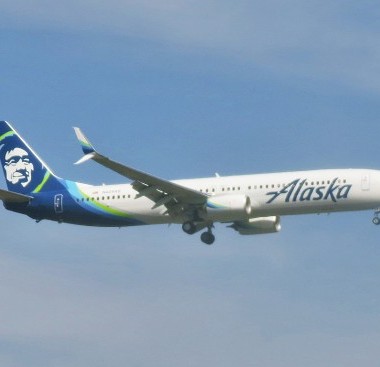Wizz Air sees peak Pratt engine groundings in six to 12 months
Wizz Air Holdings Plc’s top executive expects the number of aircraft grounded due to flaws with Pratt & Whitney’s geared turbofan engines will take another six to 12 months to reach their peak, later than the turbine’s manufacturer has projected.
RTX Corp.’s Pratt unit has been overwhelmed by the volume of engines coming in for repairs, Wizz Air Chief Executive Officer Jozsef Varadi said Thursday in an interview. Roughly 20% of Wizz’s fleet is parked as the turbines undergo inspections and fixes, with wait times of about 300 days until they can be reinstalled on an aircraft, the high end of what RTX has forecast.
RTX is recalling about 3,000 geared turbofan engines to address components made with contaminated metal powder at risk of failing prematurely. Turbines must be removed from aircraft for inspections and repairs, which the manufacturer has said will idle hundreds of Airbus SE A320-family aircraft over the next few years.
In a statement, RTX said it continues to expect global groundings over the issue to crest in the first half of 2024.
“I think that’s a bit of wishful thinking,” Varadi said. “We’re still right in the middle of all of that.”
RTX said fewer jets will be parked than the maximum of about 650 it had estimated last fall, in part due to the timing of directives from regulators mandating the inspections and repairs. The company also said it is boosting capacity of its factories and repair shops to handle the added workload.
Although Wizz expects no more than 20% of its fleet to be parked at a given time, capacity going into this summer’s busy travel season will be flat compared to a year ago, Varadi said. The budget airline has mitigated the problem through wet-leases, extending leases on older aircraft and taking new plane deliveries.
Geopolitical Impacts
Along with the engine woes, Wizz was also hit hard by the Russian invasion of Ukraine and more recently, the Israel-Hamas conflict, forcing the carrier to remove 13% and 7% of capacity respectively. Describing these as “black swan” events, Varadi said the carrier was harder hit that its rivals.
“I’m not sure what I could have done differently,” he said. “We are back into profitability. I think we are very robust and solid in terms of operating performance, but we just need to go through the cycle.”
While airlines such as British Airways parent IAG SA and Deutsche Lufthansa AG try to buy smaller carriers across Europe, Varadi said purchasing another airline is not a major part of his growth strategy for Wizz. The discount carrier is instead focused on expanding its network and avoiding complexities to its operating model.
“If airlines fail or they have to scale down, we would be there to backfill that hole and capacity,” he said.
Varadi said Wizz would consider acquiring assets such as airport slots, similar to its 2021 purchase of takeoff and landing slots at London’s Gatwick hub from Norwegian Air Shuttle ASA.
Similar Stories

Citywide sale-leaseback highlights Phoenix Airport submarket
View Article
Silk Way Alat Free Economic Zone Company and Modern Construction Group sign landmark agreement
View ArticleCPaT announces new contract with expanding airline, Blue Jet Airways KG
CPaT Global, the world’s leading provider of distance learning for the airline and aviation industry, today announced a new contract with Blue Jet Airways KG. CPaT will provide Blue Jet…
View Article
Norse Atlantic expands to Stockholm with new direct flight to Bangkok
View Article
LATAM Cargo Group launches pioneering initiative in Chile with recycled plastic pallets
View Article
WorldACD Weekly Air Cargo Trends (week 46) - 2024
View ArticleGet the most up-to-date trending news!
SubscribeIndustry updates and weekly newsletter direct to your inbox!





